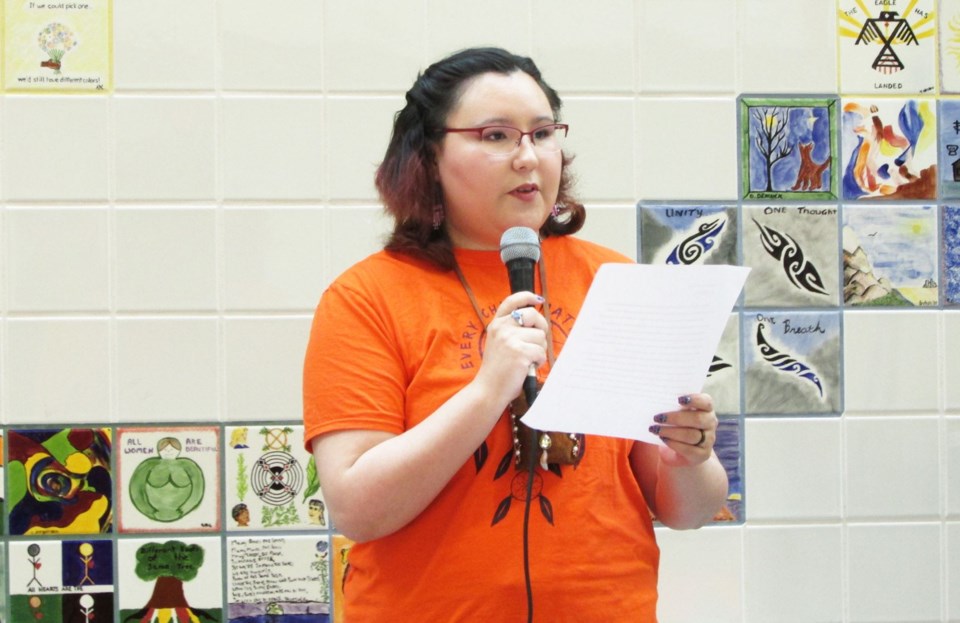The tidal wave of abuse and pain suffered at the hands of those in charge at residential schools will stop with her generation, Stephanie Jack said during an Orange Shirt Day event held at CNC's Prince George campus Friday.
CNC held similar events at all its campuses to acknowledge the need for Canadians to get informed about the history of residential schools and the intergenerational trauma which has impacted Aboriginal people.
"This is a very emotional event," Jack said after she offered a few words to those gathered at the event. "I believe the trauma crossed over the generations. My great grandparents suffered through it, my grandparents suffered through it and my parents suffered because their parents became alcoholics to cope and they beat them. In turn, my parents became alcoholics and drug abusers, which definitely impacted me and my life. But I'm definitely taking a stand now. I don't want this kind of thing to continue on."
Jack told the story of how Orange Shirt Day got started. Phyllis Webstad was one of the thousands of children who were sent to residential school. Webstad was excited to begin her education, and to mark her first day of mission school when she was six years old her grandmother bought her a bright orange lace shirt.
Much to her dismay, Phyllis was stripped of all her clothing, including her beloved orange shirt, and it was never returned to her, Jack recounted.
"She didn't understand why they didn't give it back to her," Jack said. "It was hers, after all. Since the colour orange always reminded Webstad of that she says her feelings didn't matter because no one cared about how she felt - like she was worth nothing.'"
Jack explained that because that's how Webstad felt at the time and continued to feel that way for years to come, she now tells this story so people can learn about residential schools and hopefully it will bring some understanding. Jack said Webstad shared her story to perhaps encourage survivors of residential school to share their stories.
"She says 'I want my orange shirt back,'" Jack said. "'It's a symbol of many losses and experiences of those who went to residential school.'"
The story is told to ensure that everyone is heard, everyone matters and no one should be forgotten.
Bruce Allan, CNC Aboriginal studies instructor, spoke briefly during the event as a man whose family was affected by their experiences at Lejac residential school, located 150 kilometres west of Prince George.
Allan himself was one of the children who was bused to school each day. He said he knows his father, Augustine Allan, saved Bruce from abuse when together they paid a visit to the school one fateful Saturday. Augustine identified Bruce as his son.
That was the last day Bruce ever interacted with one of the known abusers at the school.
These stories were heard at Orange Shirt Day at CNC to emphasize the need for reconciliation for all those who were affected by residential schools.
During the event, organizers shared bannock and tea with those in attendance.



